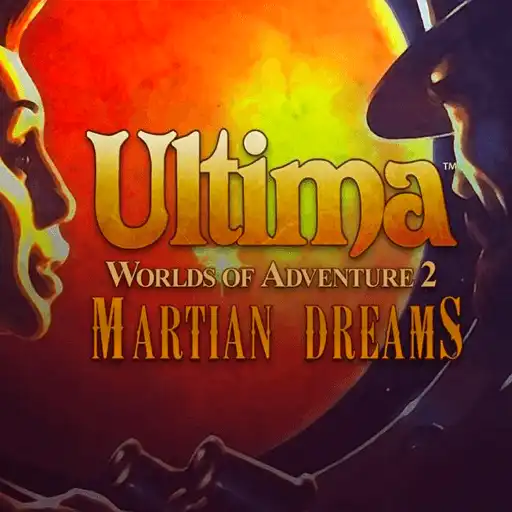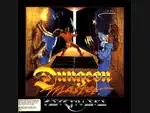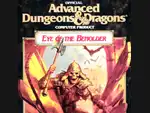
Ultima: Exploring Its Significance in Modern Culture
The Ultima series is a landmark in the world of video games, blending fantasy and role-playing in ways that shaped the genre. Its innovative gameplay and storytelling have left a lasting impact on both players and developers alike.
From its early beginnings in the 1980s to its ambitious expansions, Ultima has carved out a unique space in gaming history.
Players who immerse themselves in the Ultima universe discover rich worlds filled with mystery and adventure. Each game builds on its predecessors, bringing new ideas and gameplay mechanics.
With recent developments hinting at a revival of the franchise, the excitement for both longtime fans and newcomers is palpable.
The cultural influence of Ultima extends beyond gaming; it introduced concepts that would become staples in future games. As the series evolves, it continues to inspire and innovate, ensuring its legacy will endure for years to come.
Key Takeaways
- Ultima shaped modern role-playing games with its innovative designs.
- The series has a deep cultural impact that influenced many aspects of gaming.
- New developments hint at an exciting future for the Ultima franchise.
Origins of Ultima Series
The Ultima series began with the creative vision of Richard Garriott and has become a cornerstone of role-playing games. It introduced players to expansive worlds and deep narratives that evolved over time.
Creation and Early Installments
The first installment, Ultima I: The First Age of Darkness, launched in 1981. It was initially developed for the Apple II and featured a simple tile-based graphics system. Players embarked on a quest to defeat the evil wizard Mondain.
The game laid the foundation for an expansive universe. Subsequent releases, such as Ultima II and Ultima III, introduced new gameplay mechanics and a more intricate narrative.
Ultima III was notable for its party-based system, allowing players to control multiple characters. It marked a significant change in gameplay style, leading to a richer experience.
Another important title, Ultima: Worlds of Adventure 2, released in 1992, offered a unique blend of adventure games and role-playing elements. It expanded options for interaction, emphasizing exploration and character interaction.
Evolution of the Series
As the series progressed, each installment built upon its predecessors. Ultima IV introduced morality-based gameplay, challenging players to uphold virtues. This made the series stand out, emphasizing personal choices and ethical decisions.
Furthermore, Ultima V and VI advanced the narrative and graphics. Ultima V explored the theme of tyranny, while Ultima VI introduced a more significant focus on player choices affecting the game's world.
By the time Ultima VII was released, the series had achieved notable acclaim for its storytelling and detailed environments. This installment is often regarded as one of the best in gaming history.
The series continued to evolve through various expansions and spin-offs, showcasing its lasting impact on RPG game design.
Ultima Worlds of Adventure 2: Martian Dreams
This game is an intriguing chapter in the Ultima series, offering a mix of unique gameplay elements, a rich storyline, and an impact on the gaming landscape.
Players navigate a world filled with adventure and challenges, as they delve into its narrative and mechanics.
Gameplay and Mechanics
Ultima Worlds of Adventure 2: Martian Dreams features a blend of role-playing and adventure game mechanics. Players control the Avatar, guiding them through puzzles, combat, and exploration.
The game uses a point-and-click interface, allowing players to interact with objects and characters in the environment.
Combat involves strategic decision-making, where users must choose the right actions to progress. Items can be collected and used for quests.
The game also employs a time travel mechanic, allowing players to explore different eras. This adds layers to gameplay and encourages exploration of the game's detailed environments.
Storyline and Setting
Set on Mars, the storyline revolves around a rescue mission. Players must save a group of explorers stranded in an alternate reality.
This narrative weaves together elements of science fiction, history, and mystery.
The game introduces various Martian landscapes, including ancient ruins and futuristic cities. Players encounter diverse characters, each contributing to the unfolding story.
The blend of historical and fantastical elements creates a rich backdrop for the Avatar's journey. This unique setting differentiates it from other titles in the Ultima series.
Critical Reception and Legacy
Upon release in 1991, Ultima Worlds of Adventure 2: Martian Dreams received positive reviews for its engaging story and complex gameplay.
Critics praised its innovative mechanics, particularly the time travel aspect, which set it apart from contemporaries.
The game has left a lasting legacy within the RPG community. Its influence is seen in later titles that expand on similar themes and gameplay styles.
The title remains a noteworthy installment in the Ultima series and continues to be discussed among fans. Its re-release on platforms like GOG.com has introduced it to new generations of players, ensuring its place in gaming history.
Cultural Impact of Ultima Series
The Ultima series has made a significant mark on both the role-playing game (RPG) genre and its community of fans. Its innovative gameplay and storytelling have left lasting effects on games that followed. Additionally, the Ultima community has created a rich culture around the series, fostering connections among fans.
Influence on RPG Genre
The Ultima series, created by Richard Garriott, set a standard for the RPG genre. Its release in 1981 introduced open-world exploration, allowing players to interact with a vast environment. This concept of freedom became a blueprint for future RPGs.
Key features included:
- Deep Storytelling: Players experienced rich narratives that evolved based on their choices.
- Character Development: The series allowed for extensive character customization, which became a staple in RPGs.
- Complex Game Mechanics: Ultima introduced mechanics like morality systems, which influenced later titles.
Its innovations helped shape what players expect from RPGs today, making Ultima a cornerstone in gaming history.
Ultima Community and Fandom
The fan base surrounding the Ultima series has been active and passionate for decades. From the early days of forums to modern fan sites, communities have thrived around the games.
Fans frequently share mods, fan art, and theories, contributing to the series' legacy.
Notable aspects include:
- Player Contributions: Fans created content, expanding the Ultima universe and keeping it alive.
- Gatherings and Conventions: Community events allow fans to meet, share experiences, and celebrate their love for the series.
The Ultima community shows how a game can create lasting social connections and maintain relevance long after its release.
The Future of Ultima Franchise
The future of the Ultima franchise includes exciting developments from fans and speculations about its direction. With a legacy that spans decades, both fan-driven projects and potential new entries hold promise for the series.
Fan Projects and Extensions
Many fans have taken it upon themselves to keep the spirit of Ultima alive.
Recently, projects like Age of Singularity have emerged, aiming to modernize classics such as Ultima 6. This remake uses tools like Blender and Unity, capturing the essence of the original while introducing updated graphics and mechanics.
Additionally, fan projects often draw on the community's nostalgia. Players engage in creating mods and spin-offs, ensuring that the vibrant world of Britannia continues to thrive.
These fan-made experiences often gain traction and even attract new players who explore the universe in innovative ways.
Speculations and Possible Directions
With the original creators having less involvement over the years, speculation runs high about the franchise's future.
There are whispers about potential collaborations with modern game developers. New entries could explore multiplayer elements or mobile adaptations to reach broader audiences.
Additionally, there is interest in reviving deeper narrative explorations similar to the classic games.
Many fans express a desire for immersive storytelling that defines the Ultima experience.
Thus, the direction may blend classic RPG elements with new-age gaming trends to appeal to both veterans and newcomers alike.







